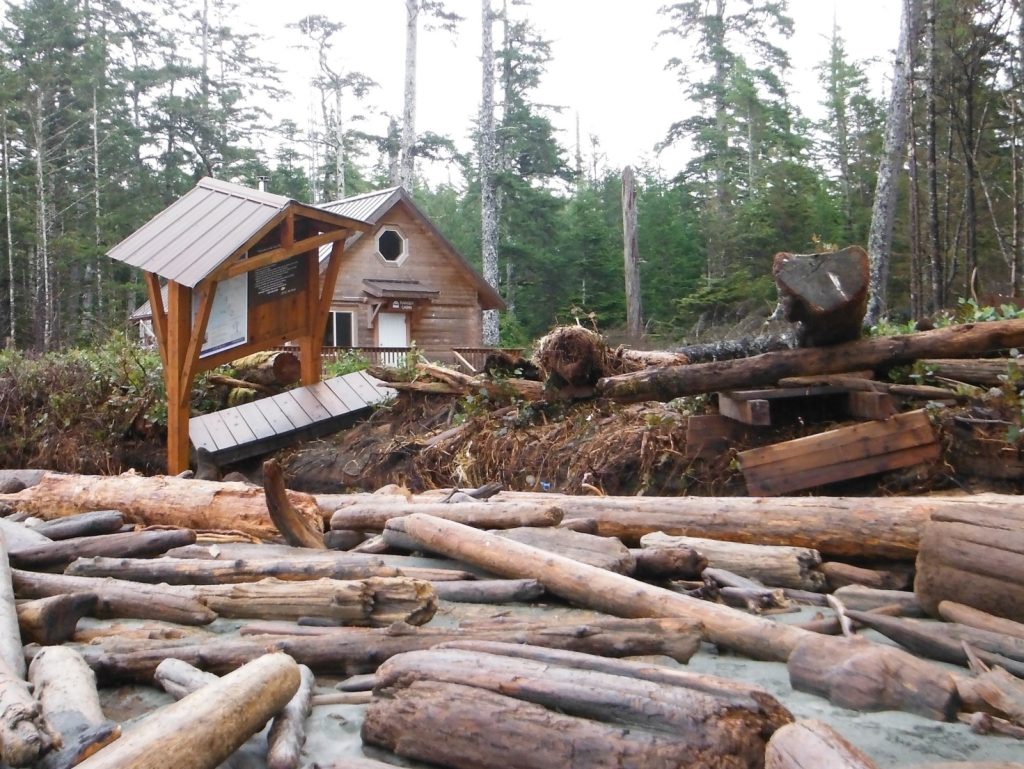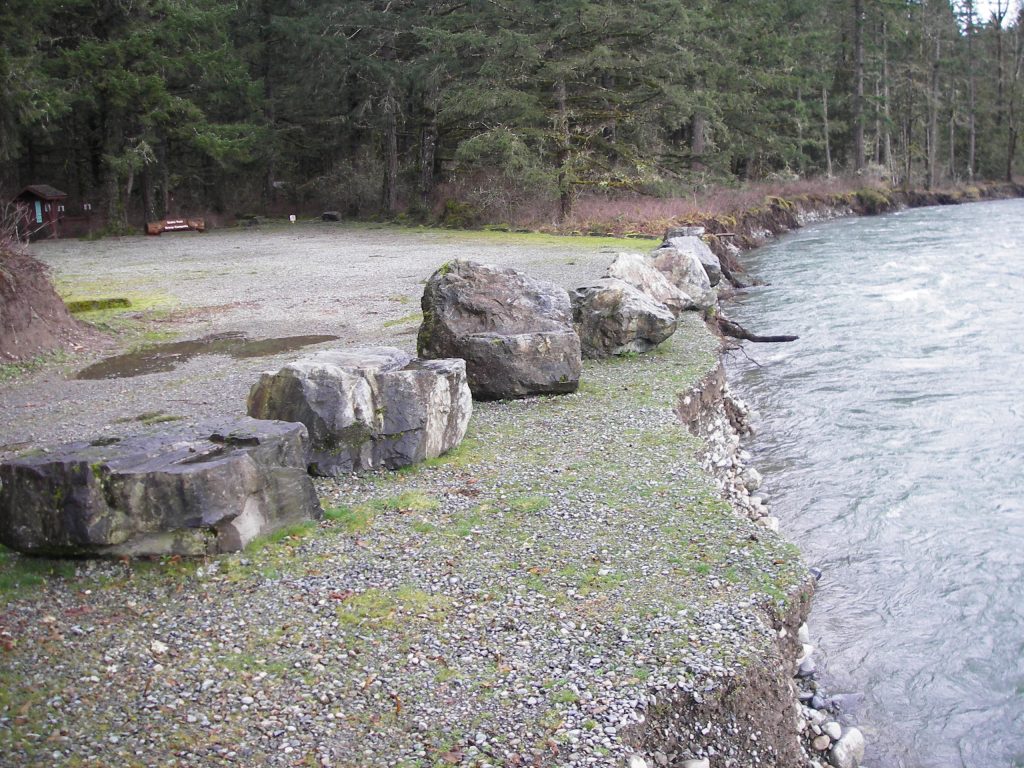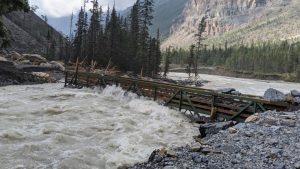Assessing climate change impacts on the West Coast
Categories:
By Catherine Jacobsen, Hayley Datoo, BC Parks
We have seen more impacts due to climate change over the last few years.
Extreme weather events are becoming more common due to climate change, creating a familiar source of loss and stress for people and communities, and for species and ecosystems too. Earlier this year, we shared the impacts that many of these weather events have had on parks across the province in A year of extreme weather events – impacts on BC Parks. In May, we provided an update on the lasting impacts of November’s atmospheric river events on parks in and around the Lower Mainland.
The protected areas of Vancouver Island have experienced their own share of impacts from extreme weather. A major storm in 2018 damaged the forest canopy and recreational facilities in Little Qualicum Falls Provincial Park, forcing the park to close for several months. In 2019, Tahsish-Kwois Provincial Park experienced the first sustained wildfire in the park’s history. Over many years, extreme river flows and flooding in Cowichan River Provincial Park have eroded the RV sites at Stoltz Group Campground, causing this campground to be relocated inland. In 2020, flooding washed out a shoreline restoration project at this site and a footbridge over Holt Creek. The long-term impacts of the 2021 heat dome on intertidal marine life, birds and other species in parks are not yet fully understood, but are thought to be significant.
In addition to these specific events, more severe winter storms are eroding shorelines in many marine parks, exposing archaeological sites, damaging trails and facilities, and contributing to tree loss. As the climate changes, so will the species and ecological communities in BC Parks. These changes will strain ecological integrity and affect Indigenous plant and wildlife harvesting practices.
How is BC Parks responding to these changes?
BC Parks will need to try different ways of responding to rapid and varied changes in parks. Some examples of activities already underway include restoring shorelines to more natural conditions to enhance their resilience to storm surges and high water levels, supporting research on climate change impacts, assessing the vulnerability of park facilities, evaluating wildfire risk and fuel loads and undergoing treatments where necessary, and continuing to use Long Term Ecological Monitoring as a tool to monitor the impacts of climate change.
Assessing our parks’ vulnerability to climate change and planning for adaptation
In a 2021 project supported by the BC Parks Living Lab Program, BC Parks staff, staff from Ka:’yu:’k’t’h’/ Che:k:tles7et’h’ First Nations and academic partners participated in a climate change vulnerability assessment and adaptation planning process for Vancouver Island, Southern Central Coast and Gulf Islands in BC Parks’ West Coast Region. Participants found river and marine shorelines, intertidal and estuary areas to be some of the ecological communities most at risk from climate change. These important environments are also some of the most highly valued features of these parks. Loss of biodiversity, including culturally important species, as well as risks to park visitors from extreme heat, wildfire and water shortages also ranked as particularly high risks in the region.
How do we move forward from here?
Protected areas play a key role as natural solutions to climate change. Therefore, visitors can expect to see changes in BC Parks management as staff, First Nations and community partners look for new ways to help protected areas adapt. Park managers may need to focus on protecting the most critical natural values in the park, to support climate change adaptation. Sometimes, resisting change will not be feasible or cost effective, and park managers will need to accept the changes that are occurring on the landscape by moving facilities or offering different types of recreational activities. Park managers may also need to actively direct changes on the landscape to protect park natural values by anticipating how climates and ecosystems will change, helping species migrate to favourable conditions, or using species adapted to future climates in restoration projects, for example.
Climate change will bring many challenges to BC Parks’ West Coast Region. The West Coast vulnerability assessment and adaptation planning process is one example of how BC Parks is working to better understand the risks of climate change and explore opportunities to adapt.







